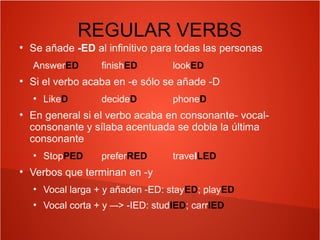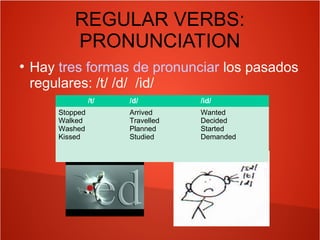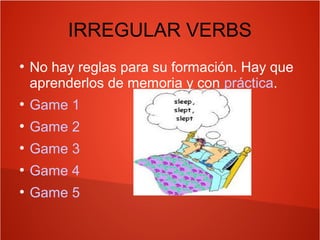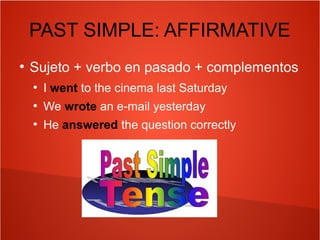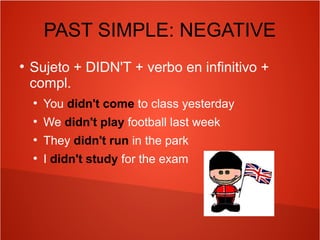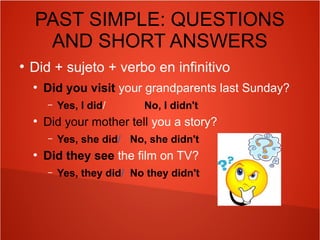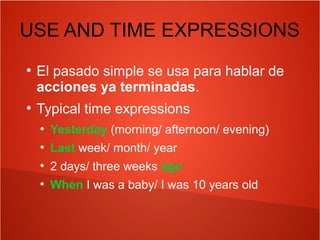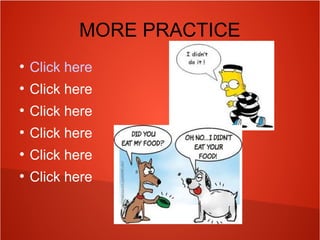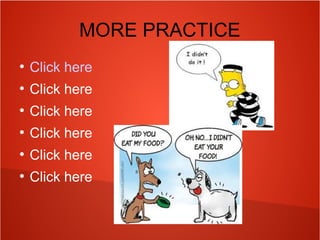Past simple2eso
- 1. SIMPLE PAST
- 2. REGULAR VERBS â—Ź Se añade -ED al infinitivo para todas las personas AnswerED finishED lookED â—Ź Si el verbo acaba en -e sĂłlo se añade -D â—Ź LikeD decideD phoneD â—Ź En general si el verbo acaba en consonante- vocal- consonante y sĂlaba acentuada se dobla la Ăşltima consonante â—Ź StopPED preferRED travelLED â—Ź Verbos que terminan en -y â—Ź Vocal larga + y añaden -ED: stayED; playED â—Ź Vocal corta + y –-> -IED: studIED; carrIED
- 3. REGULAR VERBS: PRONUNCIATION â—Ź Hay tres formas de pronunciar los pasados regulares: /t/ /d/ /id/ /t/ /d/ /id/ Stopped Walked Washed Kissed Arrived Travelled Planned Studied Wanted Decided Started Demanded
- 4. IRREGULAR VERBS ● No hay reglas para su formación. Hay que aprenderlos de memoria y con práctica. ● Game 1 ● Game 2 ● Game 3 ● Game 4 ● Game 5
- 5. PAST SIMPLE: AFFIRMATIVE â—Ź Sujeto + verbo en pasado + complementos â—Ź I went to the cinema last Saturday â—Ź We wrote an e-mail yesterday â—Ź He answered the question correctly
- 6. PAST SIMPLE: NEGATIVE â—Ź Sujeto + DIDN'T + verbo en infinitivo + compl. â—Ź You didn't come to class yesterday â—Ź We didn't play football last week â—Ź They didn't run in the park â—Ź I didn't study for the exam
- 7. PAST SIMPLE: QUESTIONS AND SHORT ANSWERS ● Did + sujeto + verbo en infinitivo ● Did you visit your grandparents last Sunday? – Yes, I did/ No, I didn't ● Did your mother tell you a story? – Yes, she did/ No, she didn't ● Did they see the film on TV? – Yes, they did/ No they didn't
- 8. USE AND TIME EXPRESSIONS â—Ź El pasado simple se usa para hablar de acciones ya terminadas. â—Ź Typical time expressions â—Ź Yesterday (morning/ afternoon/ evening) â—Ź Last week/ month/ year â—Ź 2 days/ three weeks ago â—Ź When I was a baby/ I was 10 years old
- 9. MORE PRACTICE â—Ź Click here â—Ź Click here â—Ź Click here â—Ź Click here â—Ź Click here â—Ź Click here
- 10. MORE PRACTICE â—Ź Click here â—Ź Click here â—Ź Click here â—Ź Click here â—Ź Click here â—Ź Click here

